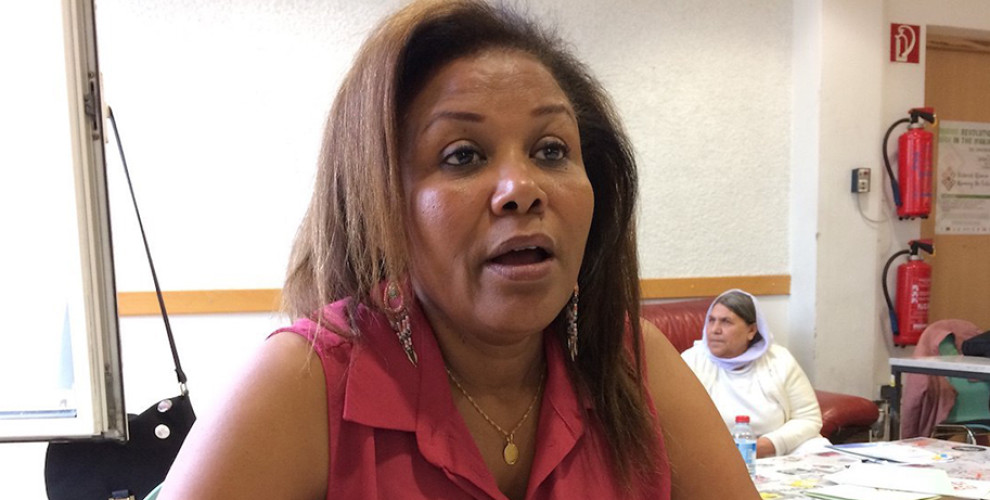ISIS is going back to Sudan where it has grown
Shadia Abdelmoneim has no doubts: the main problem facing women in Sudan (both North and South) is the Islamic State.
Shadia Abdelmoneim has no doubts: the main problem facing women in Sudan (both North and South) is the Islamic State.

Shadia Abdelmoneim talked with ANF about the main problems faced by women in Sudan.
“There is a lot of talking about the imminent defeat and consequent disappearance of the Islamic State, - she said - but the reality is that ISIS is moving to Sudan. Actually, to be more precise, ISIS is returning to Sudan, its birthplace. Let’s not forget - she added - that the most ruthless killers of the Islamic State were in fact Sudanese”.
She is passionately talking about her country, the pain clearly surfacing from her words. Shadia is one of the women who joined the International Women Conference last week end in Frankfurt.
“Unfortunately little is known about Sudan. Our country, now divided into two states, - she said - is never in the news, yet what has happened in Iraq and Syria, and is still happening, is also sadly ordinary feature in Sudan. Women are the main target of the Islamic State, those men calling themselves muslims and saying they are acting on behalf of the islamic religion, in reality are a tool of international powers whose interests lie in the resources of our territories”.
Shadia adds that “women in Sudan are raped, beaten, kidnapped on a daily basis, yet they don’t hit the headlines, because Sudan is not a place the media are interested in”.
Her emotion grows when she talked about the imposition of the hijab for women. “We are not talking about ‘just a piece of cloth’, - she says - the hijab represents the imposition of a mentality, a patriarchal mentality which means preventing women from having the same rights. In fact, - she adds - the hijab represents a block for women to get educated, an obstacle for women to have equal chances in social, economic and cultural terms”.
Asked whether women in Sudan are actually able to organise themselves, Shadia Abdelmoneim said: “The women movement in Sudan is very strong, but we are faced with incredible brutality and repression. Women do not enjoy the support of the media, therefore our protests go unnoticed, which is a problem, because of course the repression against us is brutal but goes equally unnoticed”.
As to the situation in the North and in the South, Shadia said that “in fact, the division of the country responded to the same logic of profit. The division was connected to economic interests of other powers. They want our resources, and dividing people is actually the best way to achieve control over our natural resources”.
Shadia ends her remarks with an appreciation for the Kurdish women movement. “Kurdish women - she said - are brave and well organised. In fact they have a very loud voice and forced everybody to listen to them. I think many women around the world have a lot to learn from the brave struggle of our Kurdish sisters”.